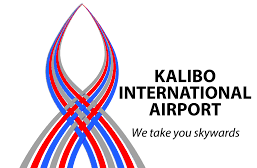 Three of eight pre-qualified investors responded to the government’s request for proposals to enter into a public private partnership arrangement to operate the Norman Manley International Airport (NMIA) in Kingston.
Three of eight pre-qualified investors responded to the government’s request for proposals to enter into a public private partnership arrangement to operate the Norman Manley International Airport (NMIA) in Kingston.
In a release yesterday, the Development Bank of Jamaica (DBJ) said three investors submitted a bid at the deadline for proposals on Friday.
This is after all pre-qualified bidders undertook extensive due diligence to support the preparation and submission of their bids, including site visits, bidders’ conference, clarifications and negotiations.
The NMIA is Jamaica’s second international airport.
The entities that submitted bids are:
1. Grupo Aeroportuario del Pacifico S.A.B. De C.V;
2. Corporacion del Este, S.A.S. Consortium consisting of Corporacion del Este S.A.S., China Harbour Engineering Company Limited, Corporacion del Kingston S.A.S, GBG Energy S. de R. L. and Jamaica Producers Group Limited;
3. Egis Projects Consortium consisting of Egis Projects, GK Capital Management Ltd., Sagicor Investments Jamaica Ltd., and Razel-Bec.
The government is expected to announce the preferred bidder by next month, according to the DBJ, which is acting as the secretariat for the transaction. The agreement with the preferred bidder is expected to be signed by October.
The preferred bidder is expected to operate, finance, develop and maintain NMIA under the public private partnership.
«The GOJ will now proceed to review and assess the proposals received to determine whether they are substantially responsive to the GOJ’s legal, technical and financial criteria as set out in the Request for Proposal document,» the release from the DBJ stated.
The request for proposals was issued in June last year following the announcement of the pre-qualified bidders. The entities pre-qualified to submit bids were:
1. Vinci Airports SAS;
2. Cedicor SA;
3. Acciona Concessiones, SL/Airports Company South Africa Soc. Limited/Acciona Airports Services, SA;
4. GMR Infrastructure Limited;
5. ZAIA-APORT Consortium, comprising Zurich Airport International AG/A-Port Operaciones SA/A-Port Chile SA;
6. Grupo Aeroportuario Del Pacifico SAB de CV;
7. Corporacion Aeroportuario Del Este, SAS/China Harbour Engineering Company Limited/Gulfstream Petroleum S de RL/Jamaica Producers Group;
8. EGIS PROJECTS SA/GraceKennedy Company Jamaica Limited/Lagan Construction International Limited.
Source: The Gleaner. Jamaica




 Big business groups, including those led by businessman Dennis A. Uy and the Aboitiz family, are again seeking to operate and develop select provincial airports that were once part of the public-private partnership (PPP) pipeline.
Big business groups, including those led by businessman Dennis A. Uy and the Aboitiz family, are again seeking to operate and develop select provincial airports that were once part of the public-private partnership (PPP) pipeline.